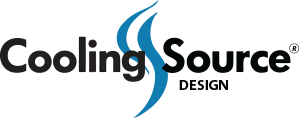
Expertise
Cooling source expertise provides significant value and advantages when it comes to thermal and mechanical designs. Here are some key benefits:
1. Optimal heat dissipation: Cooling sources expertise allows for the selection and implementation of the most suitable cooling methods for your specific application. This ensures efficient heat dissipation, preventing overheating and maintaining optimal operating temperatures for electronic components.
2. Enhanced system performance: Effective cooling solutions help maintain component temperatures within acceptable limits, allowing them to operate at their maximum performance levels without thermal throttling or degradation. This leads to improved overall system performance and reliability.
3. Extended component lifespan: By properly managing temperatures through expert cooling design, the lifespan of electronic components can be extended. Cooler operating conditions reduce stress on components, minimizing the risk of premature failures or degradation over time.
4. Size optimization: Cooling source expertise enables engineers to design compact systems without compromising on thermal management capabilities. By selecting appropriate cooling methods such as advanced heatsinks, heat pipes, or liquid cooling solutions, space can be optimized while still ensuring efficient heat dissipation.
5.Cost-effective designs: Expertise in cooling sources allows for cost-effective designs by identifying the most suitable and efficient cooling solutions based on specific requirements. Balancing factors like cost, ease of manufacturing, and performance helps optimize overall system costs while meeting thermal management needs.
6.Noise reduction: Advanced cooling techniques can significantly reduce noise generated by fans or other traditional cooling methods. By leveraging expertise in quieter alternatives, such as passive coolers or liquid-based systems, a more pleasant user experience can be achieved without sacrificing effective temperature control.
7.System integration considerations: Cooling source experts consider various factors during design, such as airflow patterns, fan placement, and compatibility with other mechanical components. This ensures seamless integration with existing systems, minimizing potential conflicts or inefficiencies during installation or operation.
8.Compliance with industry standards: Thermal management is a critical aspect in many industries where adherence to specific regulations is required. Expertise in cooling sources ensures compliance with industry standards and guidelines, ensuring that thermal and mechanical designs meet the necessary requirements.
9. Futureproofing: Cooling source expertise keeps you updated on the latest advancements in thermal management technologies. This allows for future-proofing your designs by incorporating innovative cooling solutions that can handle increasing power densities or evolving system requirements.
By leveraging cooling source expertise, you can achieve optimal heat dissipation, enhance system performance, extend component lifespan, optimize size, cost, and noise considerations, facilitate seamless integration with other components, comply with industry standards, and future-proof your designs. These advantages contribute to the overall success of your thermal and mechanical design efforts, resulting in reliable, effective, and efficient systems.

